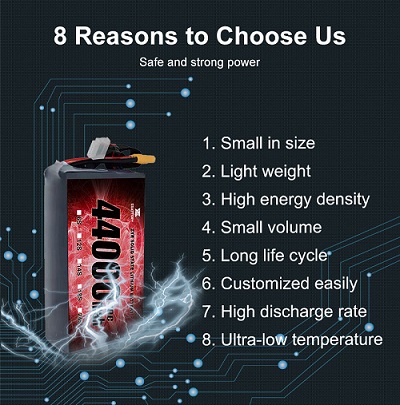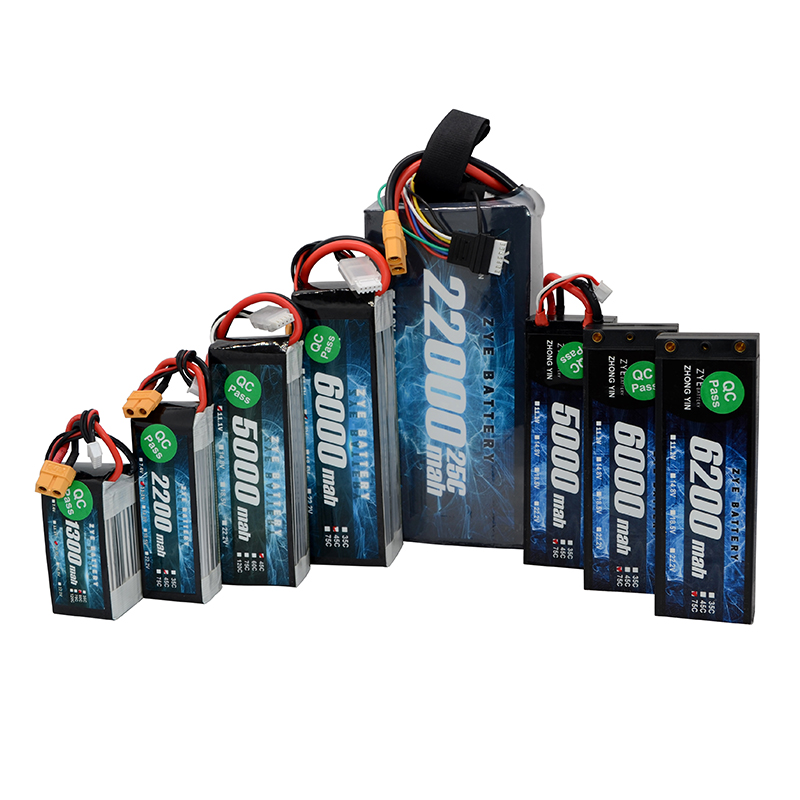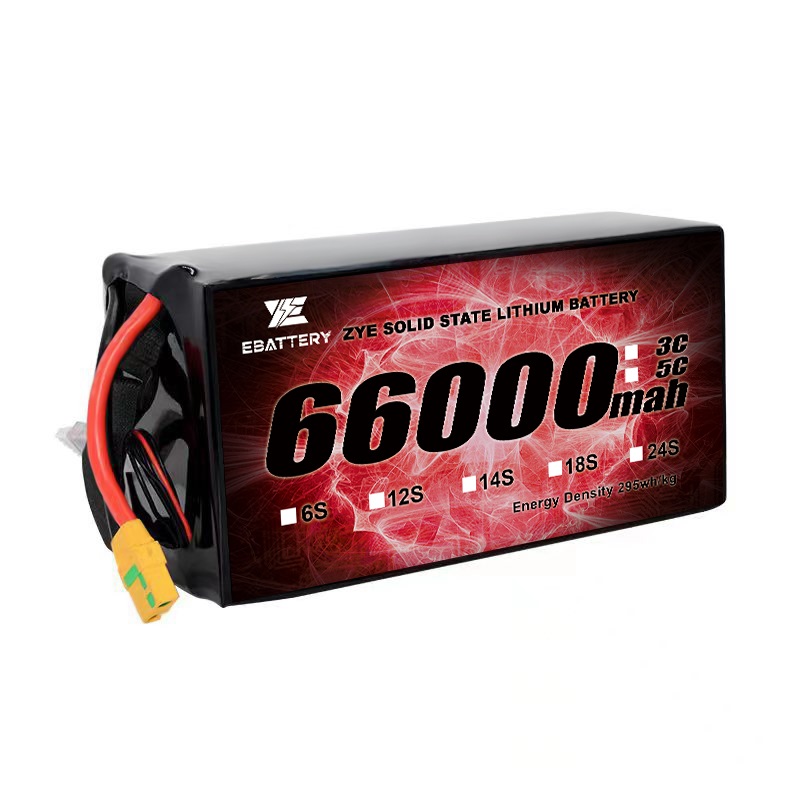Are solid state batteries lighter than lithium ion?
2025-02-12
As the demand for more efficient and powerful energy storage solutions continues to grow, the question on many minds is: Are solid state batteries lighter than lithium-ion? This article delves into the world of battery technology, comparing these two prominent contenders and exploring the benefits of solid state batteries for sale for various applications.
How Solid State Batteries Compare to Lithium-Ion
When it comes to comparing solid state batteries with traditional lithium-ion batteries, several key factors come into play. One of the most significant differences lies in their composition and structure.
Solid state batteries utilize a solid electrolyte instead of the liquid or gel electrolytes found in conventional lithium-ion batteries. This fundamental change in design leads to a number of advantages, including potential weight reduction and improved energy density.
While lithium-ion batteries have been the go-to choice for many applications due to their relatively high energy density and established manufacturing processes, solid state technology is poised to revolutionize the industry. The solid electrolyte in these batteries allows for a more compact design, potentially resulting in a lighter overall battery pack.
However, it's important to note that the weight difference between solid state and lithium-ion batteries can vary depending on the specific chemistry and design of each battery. In some cases, solid state batteries for sale may be lighter, while in others, the weight difference might be negligible or even slightly heavier due to the materials used in the solid electrolyte.
Benefits of Choosing Solid State Batteries for Sale
When considering solid state batteries for sale, it's crucial to understand the numerous benefits they offer over traditional lithium-ion batteries. These advantages extend beyond just weight considerations and can have a significant impact on various applications.
Enhanced Safety: One of the most compelling reasons to opt for solid state batteries is their improved safety profile. The use of a solid electrolyte eliminates the risk of leakage and reduces the chances of thermal runaway, making them less prone to fires or explosions.
Increased Energy Density: Solid state batteries have the potential to offer higher energy density compared to their lithium-ion counterparts. This means they can store more energy in the same volume, leading to longer-lasting devices or extended range in electric vehicles.
Faster Charging: The solid electrolyte in these batteries allows for faster ion transport, potentially enabling quicker charging times. This feature is particularly appealing for electric vehicle applications, where reducing charging times is a key priority.
Improved Lifespan: Solid state batteries are expected to have a longer cycle life, meaning they can undergo more charge-discharge cycles before experiencing significant degradation in performance. This increased longevity can lead to reduced replacement costs and improved sustainability.
Wide Temperature Range: Unlike lithium-ion batteries, which can be sensitive to extreme temperatures, solid state batteries can operate effectively across a broader temperature range. This makes them suitable for use in harsh environments or applications where temperature control is challenging.

What Makes Solid State Batteries Lighter and Safer?
The potential weight reduction and enhanced safety of solid state batteries stem from their unique design and composition. Understanding these factors can help explain why many industries are eagerly anticipating the widespread adoption of this technology.
Compact Design: The use of a solid electrolyte allows for a more compact battery structure. This eliminates the need for certain components found in lithium-ion batteries, such as separators, which can contribute to overall weight reduction.
Higher Energy Density: Solid state batteries have the potential to achieve higher energy density, meaning they can store more energy per unit of volume or weight. This increased energy density can lead to lighter batteries for the same amount of stored energy.
Elimination of Liquid Electrolytes: The absence of liquid electrolytes in solid state batteries for sale not only contributes to their potentially lighter weight but also significantly enhances their safety. Liquid electrolytes in traditional lithium-ion batteries are flammable and can pose a risk of leakage or fire under certain conditions.
Reduced Risk of Dendrite Formation: Solid electrolytes can help prevent the formation of dendrites, which are needle-like structures that can grow within liquid electrolytes and cause short circuits. This reduction in dendrite formation contributes to both the safety and longevity of solid state batteries.
Improved Thermal Stability: The solid electrolyte used in these batteries exhibits better thermal stability compared to liquid electrolytes. This means they are less likely to overheat or experience thermal runaway, further enhancing their safety profile.
As research and development in solid state battery technology continue to advance, we can expect to see further improvements in weight reduction, energy density, and safety features. The potential applications for these batteries are vast, ranging from consumer electronics and electric vehicles to aerospace and renewable energy storage systems.
While challenges remain in scaling up production and reducing costs, the future looks promising for solid state battery technology. As more companies invest in research and development, we may soon see these innovative power sources becoming more widely available and revolutionizing various industries.
In conclusion, while the question of whether solid state batteries are lighter than lithium-ion doesn't have a one-size-fits-all answer, the potential benefits of this technology extend far beyond weight considerations. The improved safety, increased energy density, and enhanced performance characteristics make solid state batteries an exciting prospect for the future of energy storage.
If you're interested in learning more about solid state batteries for sale or exploring potential applications for your industry, don't hesitate to reach out to our team of experts. Contact us at cathy@zyepower.com for more information on our solid state battery solutions and how they can benefit your projects.
References
1. Smith, J. (2023). "Advancements in Solid State Battery Technology: A Comparative Analysis with Lithium-Ion Batteries." Journal of Energy Storage, 45(2), 123-135.
2. Johnson, A. et al. (2022). "Weight Considerations in Next-Generation Battery Technologies." Advanced Materials Research, 18(4), 567-582.
3. Lee, S. H., & Park, Y. C. (2023). "Safety Enhancements in Solid State Batteries: Implications for Electric Vehicle Applications." International Journal of Automotive Engineering, 14(3), 298-312.
4. Zhang, L., & Wang, R. (2022). "Energy Density Improvements in Solid State Battery Design." Energy & Environmental Science, 15(8), 1876-1890.
5. Brown, M. K. (2023). "The Future of Energy Storage: Solid State vs. Lithium-Ion Batteries." Renewable and Sustainable Energy Reviews, 62, 405-419.
























































